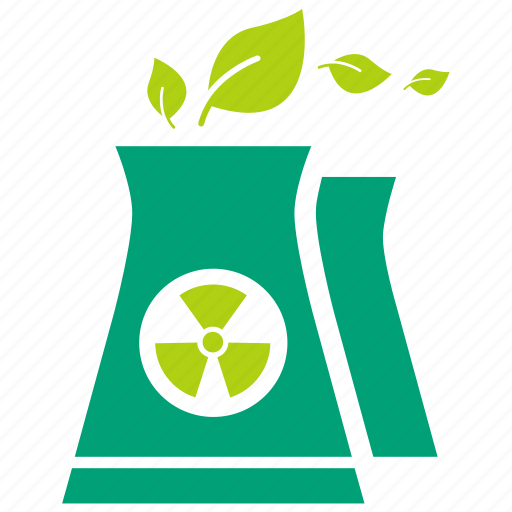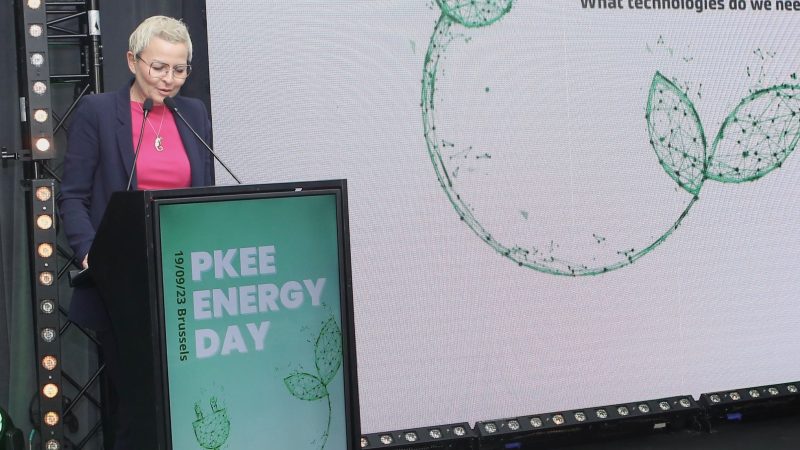Nuclear power will play a crucial role in Europe’s transition to carbon-free, secure energy production, according to Poland’s secretary of state for strategic energy infrastructure.
“I want to make a very strong appeal: we cannot afford to reject nuclear energy,” said Anna Łukaszewska-Trzeciakowska, who was speaking at the Energy Day 2023 of the Polish electricity association PKEE.
“Without nuclear energy, large scale and SMR [small modular reactors], we will not be able to achieve our climate ambitions and assure our energy security,” she said at the event on 19 September.
Poland currently does not have any operational nuclear power plants but the country aims to have its first reactor online by 2033, followed by further capacity in the following years.
The country is also part of a group of pro-nuclear EU member states, which want to reach 150 gigawatts of nuclear power capacity in the EU’s electricity mix by 2050 and are calling for equal treatment for nuclear in EU legislation.
Nuclear in Net Zero Industry Act
One area of EU policy where some have criticised lacking support for nuclear energy is the Net Zero Industry Act, which aims to boost technologies critical to the transition to net zero emissions.
While nuclear was mentioned in the European Commission’s proposal, it was not included in a list of strategic technologies eligible for EU funding and fast-track permitting rules.
“We strongly believe that the Net Zero Industry Act should be supportive to nuclear in the same way that it is to other sources, decarbonised sources, renewables, carbon capture and storage, hydrogen,” said Yves Desbazeille, director general of trade association Nuclear Europe, who spoke at the event.
“There is no reason to make any distinction because we need all the solutions. We need all those technologies if we want to meet our very, very ambitious targets for 2050,” he added.
Meanwhile, right-wing Czech lawmaker Alexandr Vondra criticised the current European Commission for “actively fighting against nuclear”.
“This net zero industry plan, yes, it’s a step in the right direction. But from our perspective, it’s far from being complete because nuclear is discriminated [against] and it’s a crime,” said Vondra at the event.
He also criticised the EU’s approach to clean technology support, saying the EU system is “socialist” as it is based on bans, regulations and public money, whereas others like the US Inflation Reduction Act offer freedom of choice with tax incentives.
“We will never compete with that system,” Vondra said, although he admitted that an EU equivalent to the Inflation Reduction Act would be difficult to implement in Europe “because we don’t have tax harmonisation”.
However, Miguel Gil Tertre, chief economist and head of unit at the European Commission’s energy department, warned against copy-pasting the US approach.
“I think if we try to compete with subsidies, it’s going to be very difficult for every sector,” he said, warning that Europe cannot achieve economies of scale like those seen in China.
At the same time, there is a lot of existing financial support available in Europe, both from the EU and from national budgets, he added.
“We need to really focus on where does the public sector make a difference, catalysing the private sector, and where we can leave the private sector alone to deliver”.
Another thing the EU can provide beyond funding is a predictable regulatory environment for investors, Tertre continued.
Regulatory certainty is key for industry, agreed Patryk Demski from Polish energy company Tauron, who vented his frustration about the EU’s changing views on what constitutes strategic net-zero technologies.
“It’s like spinning the circle around, one technology then the other technology, one solution, destroys the other solution – no one knows how the future mix should look like,” he said.
“From my perspective, what we need is really good, clear and fast regulation. The regulatory framework should work well in Europe. The second, we have to agree on the financing terms, how to support which technology, and on which terms,” he said.
On the Net Zero Industry Act, he said the EU should look at combining its strengths with ideas coming from the US.
“In my perspective, you have some part of Inflation Reduction Act, some part of European solidarity, some parts of the skills that we should share together, the common strength to achieve the goal of sustainable transformation,” he said.
The European Parliament and EU countries are currently separately debating the Net Zero Industry Act. One of the key issues there is whether nuclear should be given a more prominent role.



Good luck opening all the necessary plants before 2050.
The EPR failed because its design was overly complex to appease ridiculous German demands. It’s better for everyone that the German government has exited the scene.
And the highly capable German scientists can luckily still be employed thanks to the integrated EU labor market.
Poland will not be building EPRs, so they’ll have all the capacity they need by 2040, with the first plant online by 2033.
We also don’t need that much nuclear, thanks to renewables. Just a few plants for grid stability and energy security.
With the EPR2 and Nuward, EU energy self-sufficiency will be secure, even though we will not hit our Paris commitments due to starting too late.
But China will take the planet to 3 degrees warming, even if the EU did hit its Paris commitments, so we will have to learn to deal with a 3 degrees world regardless.
It’s unavoidable at this point, unless we invest billions in geoengineering.